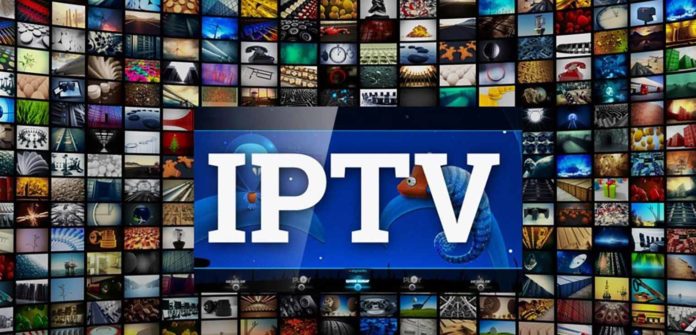In today’s digital world, television is an essential element of home entertainment. With the presence of plenty of TV services, we need to choose one based on our requirements. OTT apps like Netflix, Amazon Prime, and HBO are the most popular but some people still prefer cable TV subscription. Experience the excitement of a pre recorded live stream on the go, bringing you high-quality entertainment wherever you are. Unleash the power of our live stream on-the-go, delivering captivating content straight to your fingertips, anytime, anywhere.
Both are expensive options of home entertainment and IPTV is an affordable alternative. Now you might be wondering what is IPTV? Let’s dive deeper to know more about IPTV.
What is IPTV?
IPTV, short for Internet Protocol television, stands as a modern service that offers TV programming and video content through the Transmission Control Protocol/Internet Protocol (TCP/IP) suite. This differs significantly from traditional methods like broadcast TV, cable TV, or satellite signals.
IPTV services are usually facilitated by service providers, delivering a blend of live TV programs and on-demand video content via IP networks. Some enterprises employ IPTV systems for internal video content distribution. However, these implementations are far less common compared to subscriber-based models due to the complexity, network latency, and scaling issues.
What sets IPTV apart is its ability to provide live TV shows across various channels, making it far more versatile than big OTT platforms. However, it shares similarities with these streaming giants, as it also boasts ubiquity and pervasive accessibility. Moreover, unlike conventional cable or satellite connections, IPTV allows multiple TV sets within a single household to utilize a single subscription.
How Does IPTV Function?
IPTV relies on a broadband connection, with a preference for fiber broadband due to its constant connectivity, high speed, and minimal downtime, enhancing the entertainment experience. While traditional TV transmits analog signals via cables, IPTV uses a managed, private internet network. In contrast to traditional TV’s real-time content broadcast, IPTV incorporates servers for content storage, granting users the freedom to watch programs at their convenience (provided their IPTV provider supports this feature).
The content delivery process is straightforward and can be summarized in a few steps:
1. The user requests a specific program, and the IPTV provider receives the request.
2. The IPTV provider processes the request and transmits a video stream from their server to the end user.
3. The content stream travels through a secure, private network to a gateway on the user’s end.
4. The content is delivered in packets to the playback device via the real-time streaming protocol (RTSP), optimizing it for seamless playback.
However, to make all this possible, your TV must have the capability to interpret internet protocol signals. Regrettably, not all TVs possess this capability, necessitating the purchase of an IPTV set-top box for compatibility.
Exploring IPTV Varieties
IPTV comes in three distinct varieties:
1. Video on Demand: With this option, you visit a streaming service’s website, select the movie or TV show you want, make a payment, and enjoy the content at your leisure. This model is appealing for its flexibility, as many IPTV providers now offer on-demand services to compete with popular over-the-top streaming platforms like Netflix, Hulu, and Amazon Prime Video.
2. Time-Shifted: Time-shifted IPTV revolves around scheduling, allowing you to enjoy content at your preferred time. You can rewatch old content for a limited time, typically a few days, before it vanishes. Anything older than that is considered Video on Demand (VoD).
3. Live TV: This IPTV model broadcasts programs as they happen, mirroring the limitations of traditional cable TV. Viewers lack the flexibility to choose when and where they watch. Some IPTV providers offering live TV include FOX Sports Go, Hulu Live TV, Sling TV, and CBS Sports HQ.
All these types of IPTV work well on both your PC and set-top box or any digital TV. All these types of IPTV can be used over a public internet or managed private network that works the same way.
Diverse IPTV Providers
IPTV services are available through a range of companies, from major network operators like Verizon with its FiOS video services to tech giants such as Netflix, Google, Apple, and Microsoft. Sony also offers video streaming services through smart TV sets and internet-enabled devices, while AT&T is another notable player.
Despite the presence of reputed IPTV services in the market, there are many local service providers. So, you need to ensure whether the IPTV service you are going to choose is genuine or not. Sometimes the legality of IPTV services also needs to be considered, especially when the service provider is not a big brand.
Don’t worry, it’s very simple to check – is your IPTV service legal or not ? Before subscribing to any service provider, check whether they are present on any official app store or not. If your IPTV provider is present on Google Play, App Store, or any other official store, it means it is a genuine company, otherwise not. Most genuine service providers also charge you a subscription fee, but unlicensed ones may offer free IPTV service.
Additional examples of major IPTV providers include Roku, Hulu, and YouTube. Popular IPTV services like Amazing TV, Falcon TV, Select TV, Best Cast TV, Comstar.tv, and Xtreme HD IPTV add further diversity to the landscape.
Summing Up
IPTV can be the best streaming option for home entertainment. Also, it is more affordable than cable and OTT subscriptions. However, you need to ensure that the IPTV service you want to take is offered by a genuine and licensed service provider. Do some research before subscribing to an IPTV service to avoid any legal issues and enjoy seamless entertainment at your home.



































